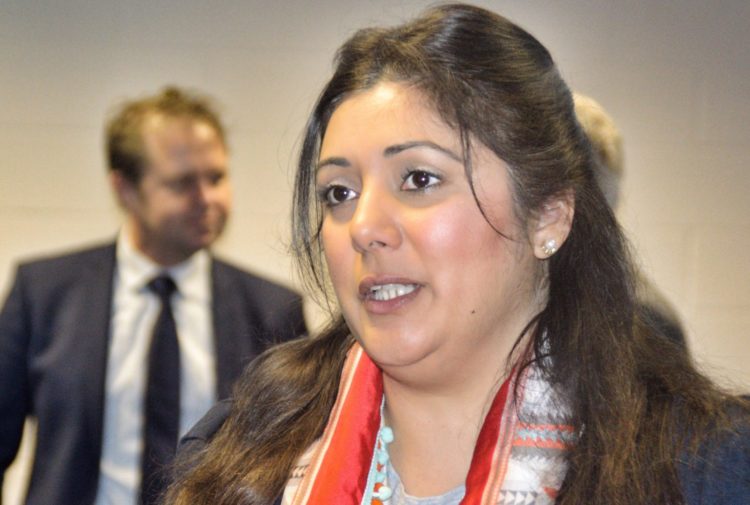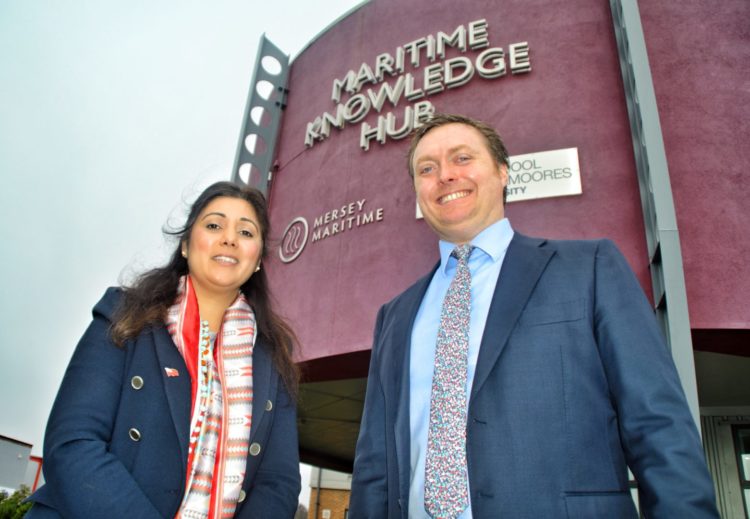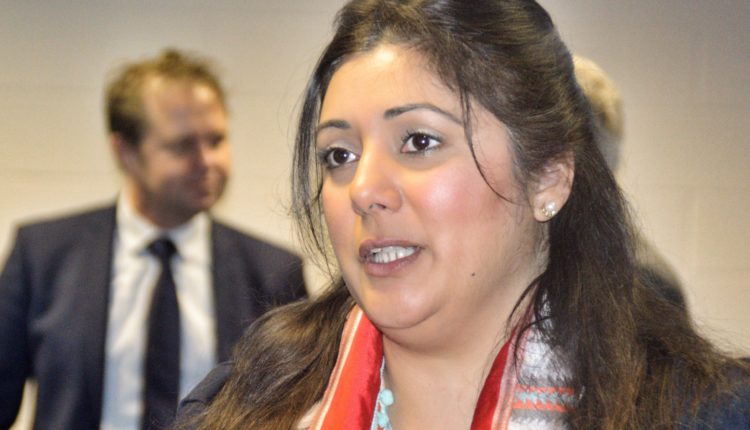Mersey maritime sector ‘critical’ to UK recovery
Former UK maritime minister Nusrat Ghani addressed an audience of Merseyside maritime leaders and told them they can lead the UK out of the coronavirus crisis. Tony McDonough reports

Liverpool city region’s £4bn powerhouse maritime sector will have a critical role to play in the UK’s post-COVID recovery, says former maritime minister Nusrat Ghani.
And Ms Ghani added it was now more important than ever for the maritime sector to further strengthen its links with Government and open up even more lines of communication at all levels of Whitehall.
Now a prominent backbench Conservative MP, Ms Ghani is also a Senior Fellow at Policy Exchange and a member of the Business, Energy and Industrial Strategy Select Committee and remains an influential player in the UK’s post-COVID and post-Brexit industrial strategy.
Addressing dozens of Mersey Maritime members as part of its online Face-2-Face series of events, Ms Ghani said that it had become very clear during the coronavirus crisis how important the maritime sector was to the UK’s supply chain.
She added: “What is also clear is that the sector has not asked for a great deal of support during the crisis in comparison to other business sectors. But it will require a lot of support with technology if it is to compete across the world.
“COVID-19 has been a challenge for the maritime sector and there is now a good opportunity to demonstrate how important the sector is to the UK… the US-UK trade deal will be a very big deal for the country and we will need the input of the maritime sector, particularly on Merseyside, to make sure it is a success.”
Mersey Maritime, along with Maritime UK, is already playing a major role in influencing the Government’s industrial strategy and trade policy. It offered a significant input into the Maritime 2050 strategy, which offers a blueprint for the sector’s growth over the coming decades.
And the organisation’s chief executive Chris Shirling, and his team, have also played a big role in strengthening trade links with the US and provided vital data and advice for the Government’s Maritime Recovery Plan. Ms Ghani says that expertise will now be more important than ever in the coming months.
As the UK emerges from the COVID-10 crisis there is now widespread consensus that unemployment will be one of the biggest issues facing the Government. Ms Ghani said the maritime industry had a big role to play in leading the recovery in coastal communities.
She identified key areas of focus, including skills and training, investment in technology, free energy and how we move freight more quickly and efficiently across the country by investing in road and rail infrastructure. She urged the maritime sector to put itself at the forefront of those areas.
“Each of the regions will need to agree what they are going to major on,” she explained. “You cannot all compete and be centres of excellence on the same thing. It is important to decide who is going to pitch for what.
“There is a big issue with unemployment coming down the line and that will have a big effect on coastal communities. Those communities will need investment and we will need the right people in the right jobs.”

Ms Ghani spoke about her experience in Hampshire working with the Port Enterprise Partnership and how “fantastic” that model was in helping to drive economic development. She said it was important for the proposed £25m Maritime Knowledge Hub (MKH) in Wirral’s docklands to get up and running.
That project is being led by Mersey Maritime in partnership with Peel and local governments and the aim is for work to start later this year. The facility could lead to the creation of up to 4,000 new jobs.
A big element of the MKH will be training and Ms Ghani again urged the maritime sector to speak to Government to ensure the industry’s present and future skills needs are met. She added: “Ports are very independent and don’t usually ask for help. Post-COVID we need to have a whole new conversation. Apprenticeships needs to be reviewed to make sure they work better for the maritime sector.
“When the sector has been bold on things such as technology, for example its work with drones, that has gone down really well with young people. We need to get the message across that there is a lot more to maritime careers than just going to sea.
“You want good people coming into maritime so that you guys can have a real choice about who you recruit. It is crucial to get the message across to Government that you can provide high value jobs and transferable skills.”

